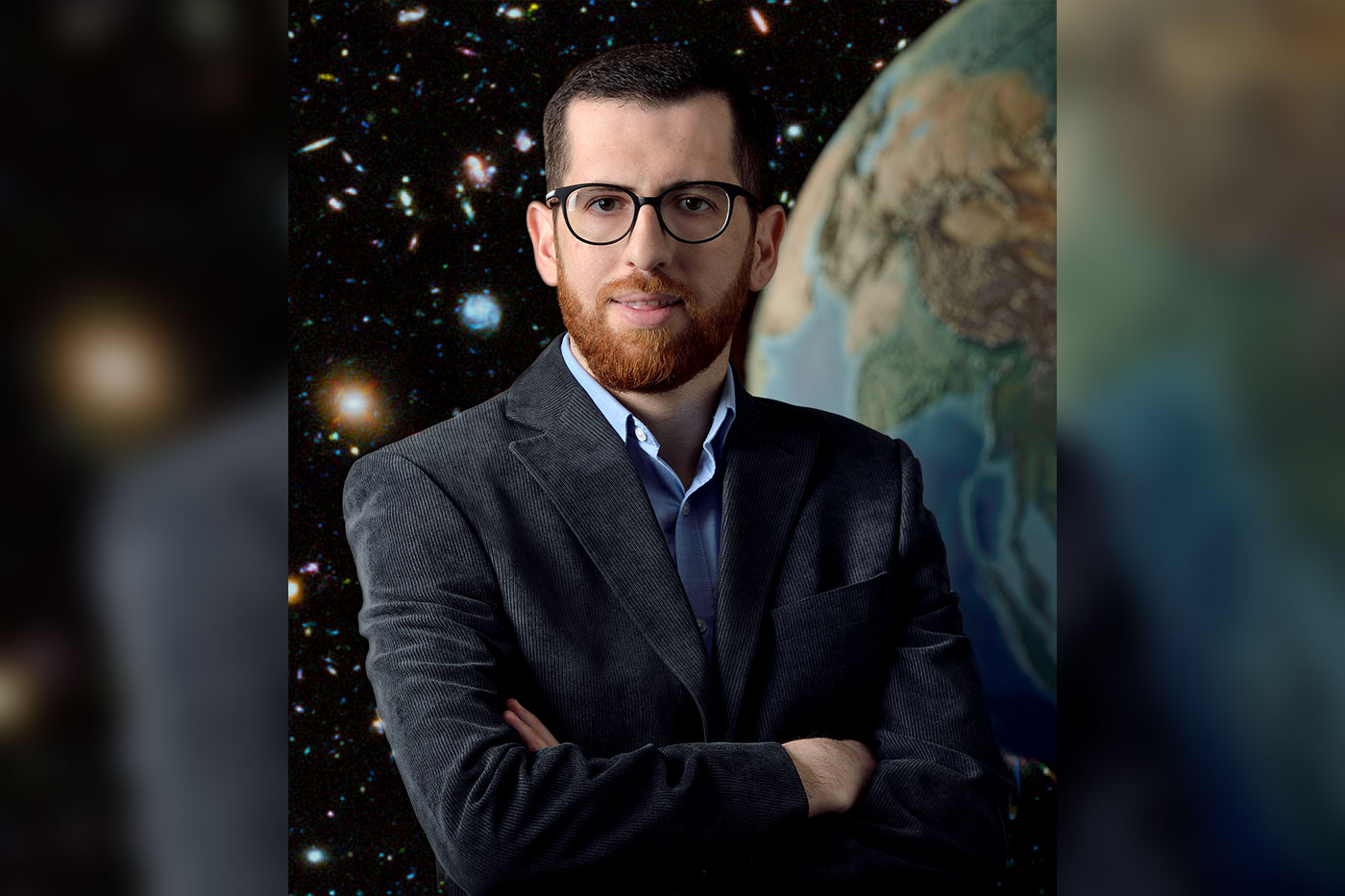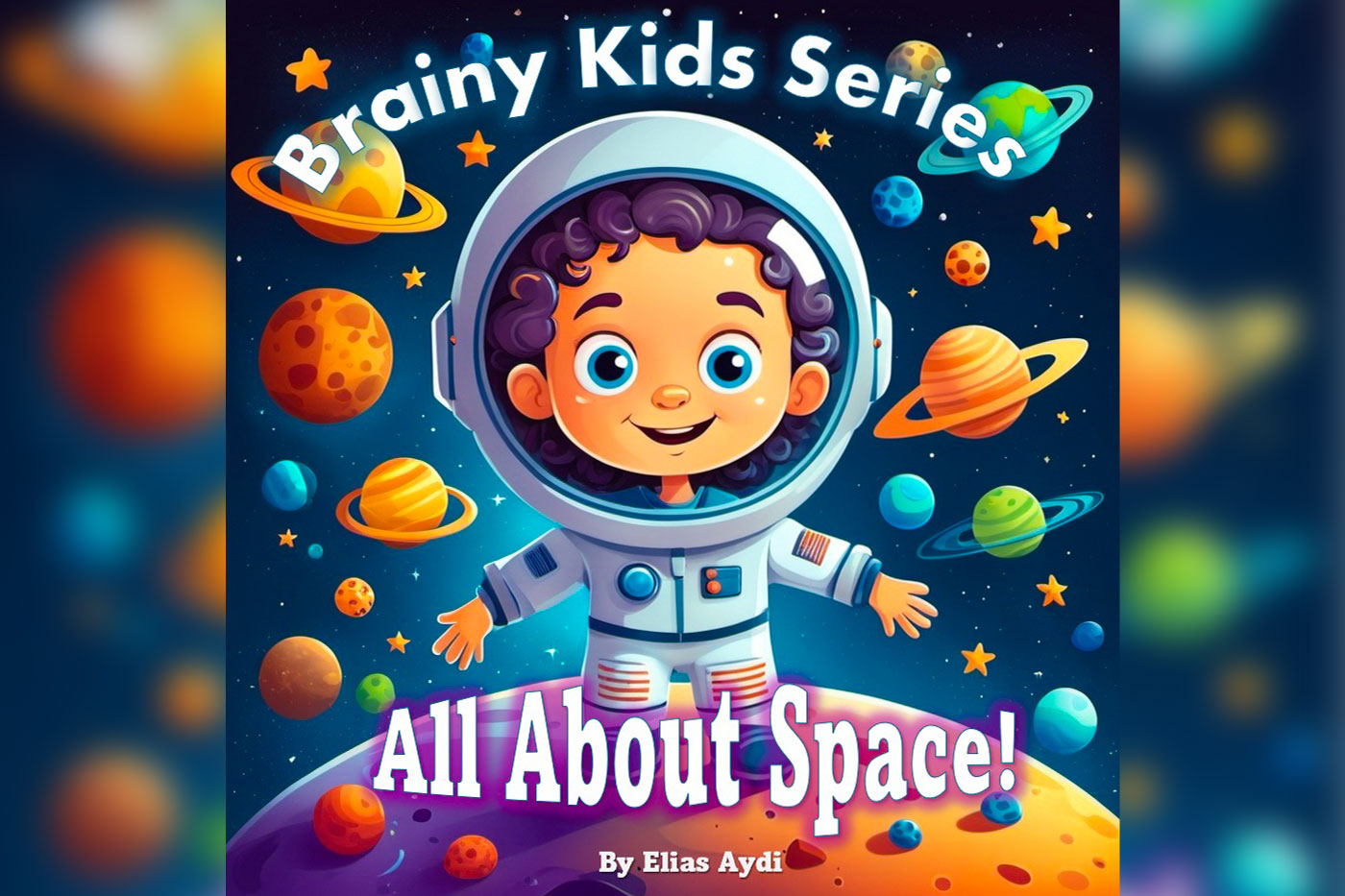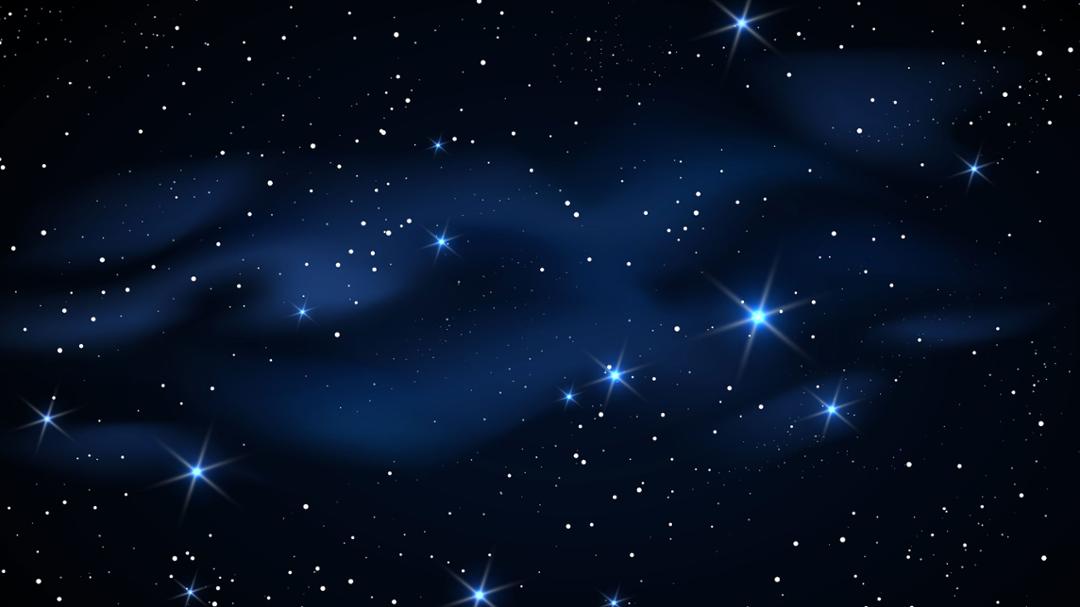Elias Aydi’s new book describes the wonders of space to a young audience.
Sharing the wonders of science with others has long been a passion of Elias Aydi, an assistant professor in Texas Tech University’s Department of Physics & Astronomy.
In January, Aydi took his zeal for science communication to the next level, releasing the first of a planned trilogy of children’s books on the natural world. “All About Space!” guides children aged 4 to 10 years old through an exploration of the sun, solar system, constellations, galaxies, space missions and more.
The publication marks the fulfillment of a long-held dream.
“I’d always contemplated the idea of writing books, whether for adults or for kids,” Aydi said.

He grew up in Lebanon, fascinated by a desire to understand how the world around him worked while situated where few around him pursued the subject of physics. Aydi’s interests soon graduated to astronomy, influenced by a notable moment that occurred when he was 14.
At that time, a local group had organized a public viewing event in Aydi’s hometown where he looked through a telescope for the first time and saw the moon and Saturn.
His mind was blown away and he resolved toward a future in physics, which he would pursue at the undergraduate level before earning his master’s degree in astrophysics.
Aydi feels more intrigued than uncomfortable while in a territory with so much uncertainty.
“Because we deal with the unknown every day, you feel like you’re always on edge for new discoveries,” Aydi said. “I don’t consider what I do working, I’m just enjoying something really fun.”
His time spent studying for his doctorate in astrophysics in Cape Town, South Africa was the start of his academic exploits away from Lebanon.
There he saw that some people had less access to the broad range of scientific research, due to socioeconomic gaps caused by the legacy of South African apartheid.
“This encouraged me to try to reach out to certain demographics and communities to show them astronomy is for everyone and exploring the universe is really fun to do,” said Aydi.
Diving deeper into science communications, Aydi sought to communicate the phenomena of the universe and advise people, especially children, that opportunities to forge careers in science were possible. While pursuing his doctorate in astrophysics, he also led public outreach events and wrote articles for newspapers and magazines.
When he graduated in 2018, Aydi was well into his side hobby of creating scientific content on YouTube aimed at reaching Lebanese children, filling a need to provide educational and inspiring media opposite the negative mainstream news cycles concerning the Middle East.
His approach followed what’s become a pattern over the years, of him seeing children be captivated by learning about planets, stars, and black holes.
Following a stop as a research associate at Michigan State University, Aydi joined Texas Tech’s Physics & Astronomy faculty.
In addition to his teaching duties, Aydi conducts research in various disciplines. Observation astronomy gathers data on novae, or brief star explosions, and time domain astronomy observes phenomena in other astronomical objects. Aydi also creates hydrodynamic computer simulations of dying stars over the course of stars’ extended end-of-life cycles.
The simulations aim to project an image of what our solar system will look like when the sun starts to die billions of years from now and how Earth and other planets will interact with the materials the sun launches from itself.
Since coming to Texas Tech, Aydi has also become a part of organizing Physics & Astronomy’s Astronights at YWCA Lubbock and Star Parties at the Texas Tech University System’s recently acquired 3 Rivers Ranch in Crowell, Texas.
The department’s commitment to providing the public with accessible lectures on science, demonstrations and viewings at these events boosted Aydi’s perception of what he was walking into as a continuation of what he had done at previous stops.
Outreach activities are a two-way street in that both the public and scientists benefit, Aydi said. Seeing the awe on people’s faces when they’re looking into telescopes motivates Aydi and reminds him why he loves astronomy.
“It’s also our duty to communicate what we have learned throughout our careers and what we’re still learning with this community, which is also contributing to this institution,” Aydi said. “Definitely, that is something I feel that not only I love doing, but also I feel like we should be doing as educators.”
Toward the end of the last fall semester, his attention turned back toward that lingering dream of publishing a children’s book.
With the writing portion already in his back pocket, Aydi researched how to produce the cover and illustrations himself and spoke with his young nephew and niece to gauge what scientific interests they had.
The book began with an outline of the journey through space readers would experience. Then Aydi made a point to include fun facts and positive messaging about the future of Earth and the readers themselves.
“In a lot of instances in the book, I talk about scientists working on certain topics and I say, ‘Maybe you in the future will be able to solve this mystery, or make this discovery, or travel to the moon or become the first person walking on Mars,’” Aydi recalled.
The ending reminds young readers that although space exploration is important, their most crucial task is to cherish, conserve and maintain the planet they live and play on every day.

Though published on Amazon just a few weeks ago on Jan. 6, Aydi is proud of the impact his work has already had.
He’s received plenty of photos from friends of their kids reading the book, several five-star Amazon reviews, and support from department colleagues. The most satisfying and touching feedback, though, is his friend’s 4-year-old daughter’s new obsession with asking questions about space.
“This is what I’m happy about: to see that I’m making some sort of a positive impact on some young readers,” Aydi said. “This was the main aim of the book. I’m hoping that while this book is out and people are enjoying it, it gives me more motivation to finish the other books in the series.”
At least one of its readers will likely be a part of the next generation of career scientists, continuing humankind’s instinctive curiosity about the natural world.
Beyond coming closer to understanding how the universe works, though, Aydi said the practicality of studying the cosmos lies in the access to observing phenomena unfamiliar to Earth.
The universe is another laboratory for learning new tenets of physics; the implications on daily life are hard to predict and could occur either instantly or a century down the line, as is often the case with scientific research.
Scientists working in the late 19th century to comprehend atoms’ composition and function laid the groundwork for the world as we know it now.
“All the phones and smart devices we have were based on this,” Aydi said. “Whatever research they did became a core part of our technological revolution 100 years later.”
Cameras are his chief technological fascination. An avid vintage camera collector, Aydi’s passion for photography can be seen through his snapshots of landscapes, people and the night sky.
Texas Tech’s Preston Gott Skyview Observatory in Shallowater offers another outlet for Aydi to shoot astrophotography in addition to leading classes or research by collecting data with telescopes.
“When I’m holding a camera in my hand and looking through the lens, I always feel joy,” said Aydi. “You feel like you’re recording a moment in history that’s never going to happen again.”
With any luck, “All About Space!” will direct more people toward the path of creating unforgettable memories while studying science.

